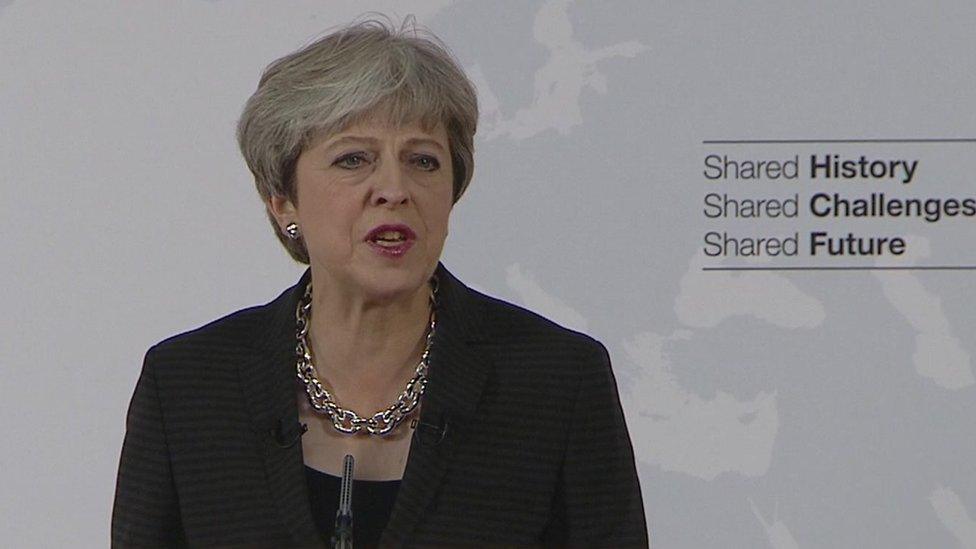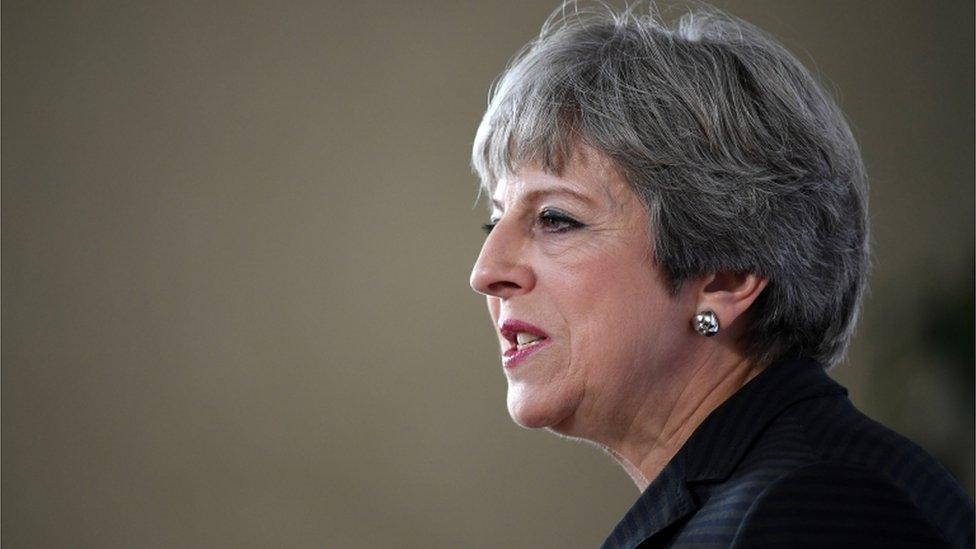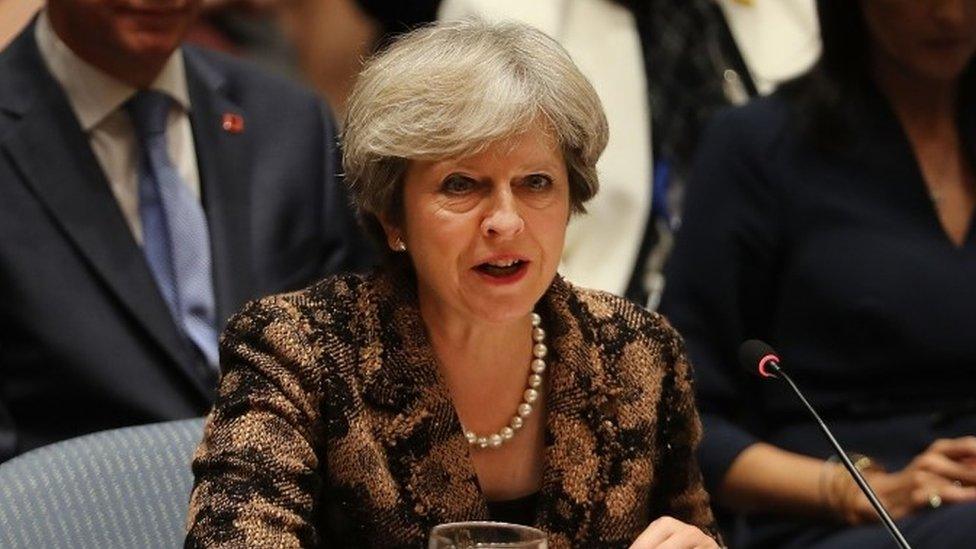May uses Florence Brexit speech for 'sympathetic gesture'
- Published

The PM aimed to speed up Brexit negotiations
"At times our need for a sympathetic gesture is so great, we care not what exactly it signifies or how much we have to pay afterwards."
Forgive the delving into my fifth year English homework. (Before you ask: EM Forster, A Room with a View, the homework was rather a long time ago.) But, when someone has said it better before, why try to say it again.
Theresa May's speech is indeed, above all else, an attempt at a "sympathetic gesture", an admission that the UK government is willing to pay tens of billions of taxpayers' cash to the EU over the next couple of years, and acknowledgement that there will have to be a limited, but extended period of time - a transition period - where the relationship between the UK and the EU might not actually change very much.
It is an offer, not a blinding revelation, but a limited flash of ankle to her continental counterparts.
Today was not about lavishing detail on the EU side who are eager to understand more about what it is the UK actually wants from them after we leave.
It was the notional writing of an undated cheque from us to them, that government insiders hope means next week, when the official talks get back under way, some progress can actually be made.
It was also about reassuring business that there will be time for them to get used to the idea of leaving, for new systems and infrastructure to be set up. And reassurance too, the aim was, for the three million or so EU citizens who've made their home in the UK.
Politically ministers know they might face a backlash, and there is certainly a range of opinions, shall we say, in Cabinet about the pace of change.
Former UKIP leader Nigel Farage is already accusing the PM of sticking "two fingers up to the great unwashed".
I'm not sure many of the 17 million people who voted to leave would appreciate being described that way, but it is certainly likely many Leave voters will feel peeved that complete withdrawal might take so long, and might also cost so much.
The issue of transition was never much discussed during the referendum campaign, and voters were told they could expect money back, rather than keep paying in.
Even though this has been pretty clear in Whitehall for many months, today is the first proper attempt the prime minister has made to communicate that reality more clearly.
But beyond that, Friday's speech represents no sudden dramatic breakthrough. She has been more explicit about cash and about transition, but is very far from giving full details of what that might actually mean in practice.
Of course whatever the UK wants or asks for is subject to negotiation. But Continental frustration that the UK is being slow to be clear about its wants and desires won't disappear.
Theresa May has made no new blinding discoveries in this Renaissance city. But she hopes to have inched forward a process that has many miles to go.
- Published22 September 2017

- Published21 September 2017
